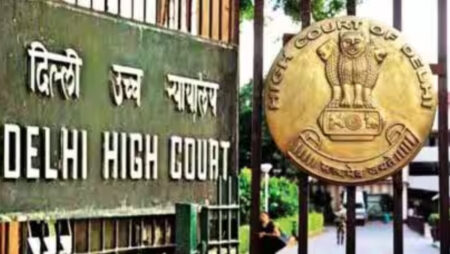On Thursday, The Karnataka High Court dismissed an appeal by holding that there is no error in the findings of the Learned Singh Judge in the present appeal. The appeal was listed before the division bench presided by Justice SG Pandit and Justice Vijay Kumar Patil. This appeal had been heard on 15 June 2024 and was reserved for “pronouncement of Judgment”.
The bench observed that we do not find any error in the aforementioned findings of the learned Single Judge calling for interference in the present appeal. The learned Single Judge has considered the case of the grantee on merits and appreciation of the material on record and has categorically held that the appellant has initiated the proceedings under Section 5 of the PTCL Act after the lapse of 7 years and after third-party interest has been created.
In furtherance to this, the court, inter alia, discussed the judgment of the Hon’ble Supreme Court of Nekkanti Rama Laxmi. In that case, it was held that a fair amount of time should pass before applying for land restoration and resumption. The appellant grantee in this case applied for restoration and restart after a 7-year period, which cannot be regarded as a fair amount of time.
The Facts of the Case
This case was initially filed as a writ petition under Article 226 of the Indian Constitution seeking the issuance of a writ of Certiorari to quash the orders previously passed. The order had been passed for the resumption of Land on the application of the Karnataka Schedule Case and Schedule Tribes (Prohibition of Transfer of Certain Lands) Act, 1978.
Originally, the appellant had filed this application before the Assistant Commissioner where the application was granted and the same was confirmed in another appeal before the Deputy Commissioner. The alienation of the land was not an issue. This land was alienated in favour of the respondent, and he had utilized the land for factory purposes. The proceedings were initiated by the appellant after 7 years and after receiving the sale consideration.
Being aggrieved by such an order, the respondent filed the case before the single bench of the high court. The court, after hearing the argument on both sides, set aside the orders passed by the commissioners on the ground that the proceedings have been initiated after a delay. The appellant challenging this decision filed the present appeal contending that the court has not considered the fraud played on the grantee. Further, it was contended that the fraud vitiated all the proceedings of the sale deed execution.
Judgment
The court after deliberation held that the doctrine of unreasonable delay applies to the start of proceedings under Section 5 before the Assistant Commissioner. Further, the court rejected the appellant’s contention by observing that the appellant grantee is not permitted to assert fraud outright in the absence of any proper pleadings and credible proof. It is not acceptable to rely only on an unregistered mortgage deed to claim that the grantee has been the victim of fraud.
The appellant grantee in this case applied for restoration and restart after a 7-year period, which cannot be regarded as a fair amount of time. Therefore, this court finds no error in the judgment made by the single-judge bench and dismisses the present appeal.













